November 27, 2025 | 03:43 GMT +7
November 27, 2025 | 03:43 GMT +7
Hotline: 0913.378.918
November 27, 2025 | 03:43 GMT +7
Hotline: 0913.378.918
The village meeting to deploy rice production using organic processes for the 2023 crop season in Phu Da village and An Lam village, Yen My commune (Nong Cong, Thanh Hoa) ended at 11 p.m. without any results. The organic rice growing campaign team led by Mr. Phan Dinh Loc - Chairman of the Commune People's Committee left in the dark. An official of an organic agricultural material supply business present at the meeting that day whispered in Mr. Loc's ear: “The people of your hometown reacted so fiercely! How can we grow organic rice like this?".
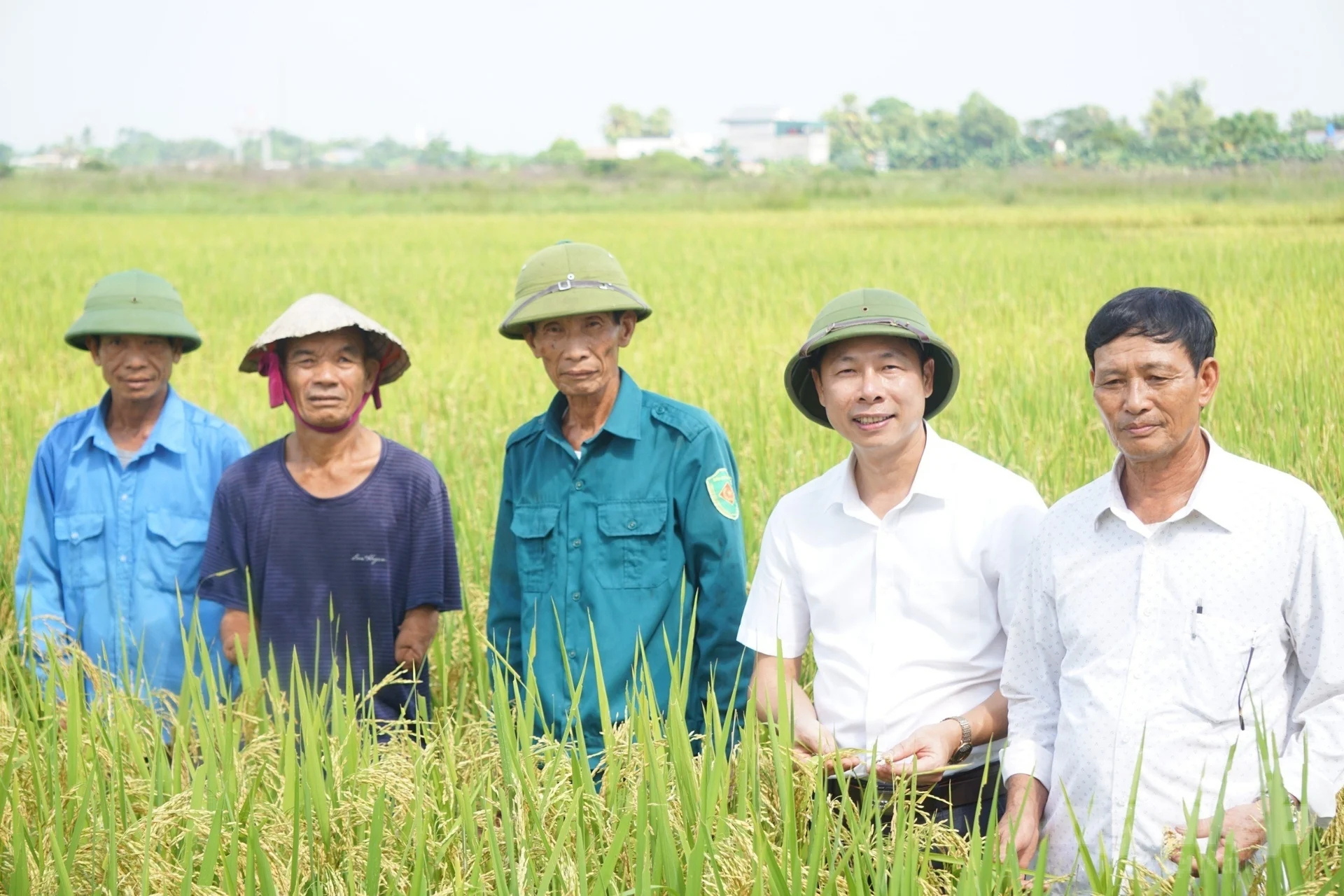
Dr. Nguyen Trong Quyen, Director of the Center for Research - Testing and Crop Services of Thanh Hoa Agriculture Institute (2nd from the right) visiting organic rice fields with people in Hop Nhat village, Te Nong commune. Photo: Quoc Toan.
In Yen, My commune, officer Loc is considered a pioneer in applying organic farming processes to household tea and fruit tree production. Therefore, when the Center for Research - Testing and Crop Services (Thanh Hoa Agricultural Institute) proposed to pilot organic rice cultivation, Mr. Loc immediately agreed. However, when meeting to deploy the model to people in the commune, the advocacy team encountered many difficulties.
Last year, Mr. Loc chaired several meetings in the village and commune on the topic of organic rice, but the households all shook their heads at this idea. “If they are asked to change from growing rice to other crops, they agree, but when it comes to doing organic farming, everyone flatly denies it. Partly because farmers do not know what the organic rice farming process is. Some other households are skeptical about the (low) output, so no one cares. Some people are so pessimistic that if the model succeeds, it's pure luck, but if it fails, the people have to bear the consequences. The campaign team had to go door to door to encourage people to participate in the model, but they were silent and didn't pay attention" Mr Loc shared.
At the 4th meeting, at the end of the 2023 crop season, the advocacy group and staff of Thanh Hoa Agricultural Institute directly went to the village to mobilize and disseminate expertise and methods of organic rice farming to people. On one hand, the people agreed to implement the model, on the other hand, they set conditions for the commune leaders: First, there must be a commitment to guarantee the productivity and quality of organically produced rice; Second, providing seeds, technical support, ensuring stable output for farmers; Third, if rice cultivation fails, officials must fully bear the costs and compensate productivity as guaranteed to the people...
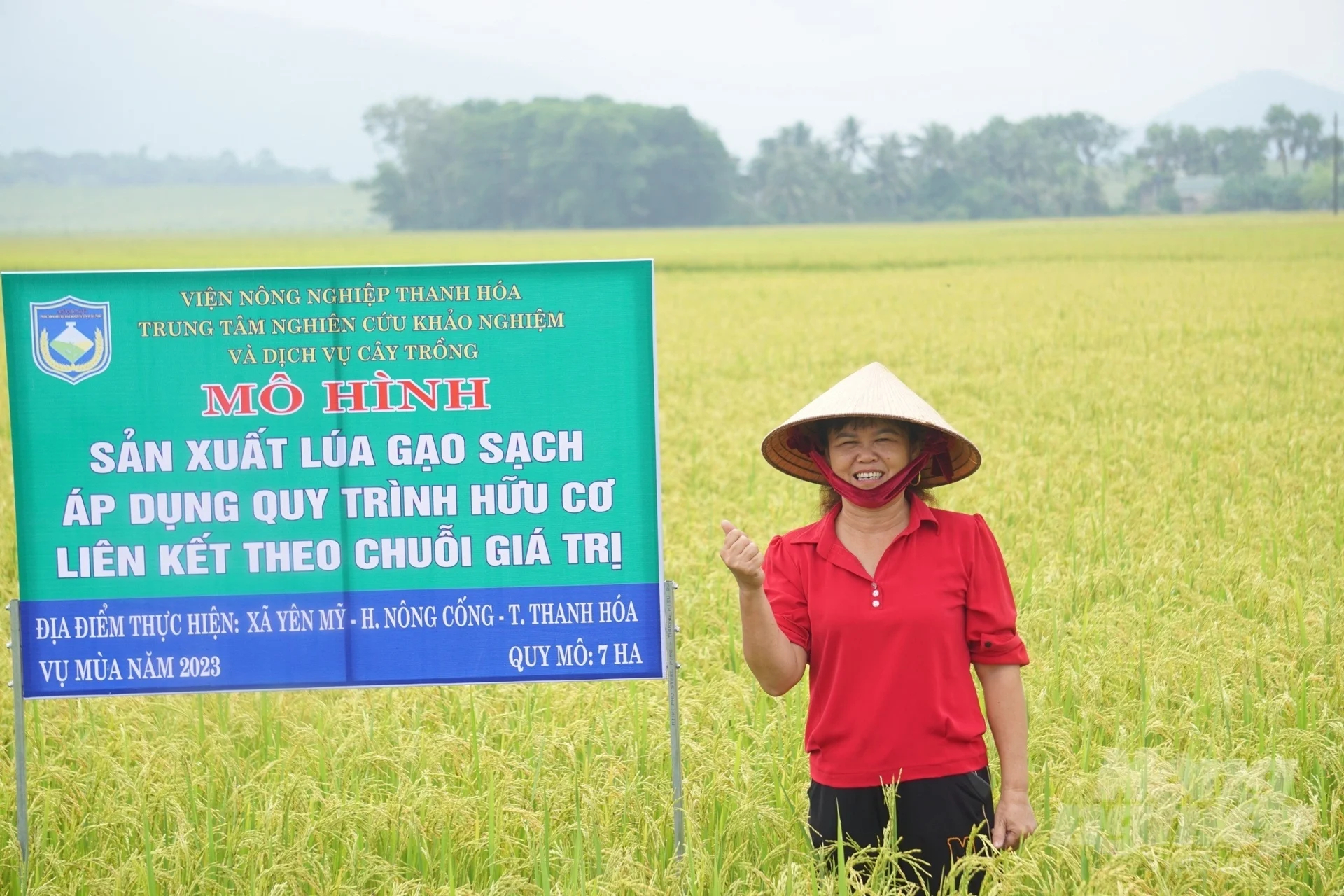
Farmers are excited because the organic rice model in Yen My commune has shown positive results. Photo: Quoc Toan.
Officer Loc is a senior leader but has never had the people impose such conditions on him. Although he wanted the best for his people, Mr. Loc seemed sad at that time. In front of the crowd, Mr Loc stood up and pledged to take "political risks" if the organic rice growing model was not successful. At the end of that meeting, 57 households in Yen My commune signed a commitment to participate in organic rice farming, with the above conditions.
As a direct participant in the meeting, Dr Nguyen Trong Quyen, Director of the Center for Research - Testing and Crop Services (Thanh Hoa Agricultural Institute) said, the reason why organic rice farming is not yet popular is due to the reluctance of some people to change. Therefore, if you want to do clean organic agriculture, you must help people change their thinking in production.
“Farmers are too familiar with farming methods using inorganic fertilizers and chemical pesticides. However, the abuse of chemicals not only affects product quality but also directly affects the ecological environment and people's health. Therefore, it is necessary to encourage people to understand the benefits and process of organic rice farming. In addition, to make people feel secure and confident, we are committed to guaranteeing productivity and supporting increased costs due to organic production. We also guaranteed product price, so everyone agreed to participate", Mr Quyen shared.
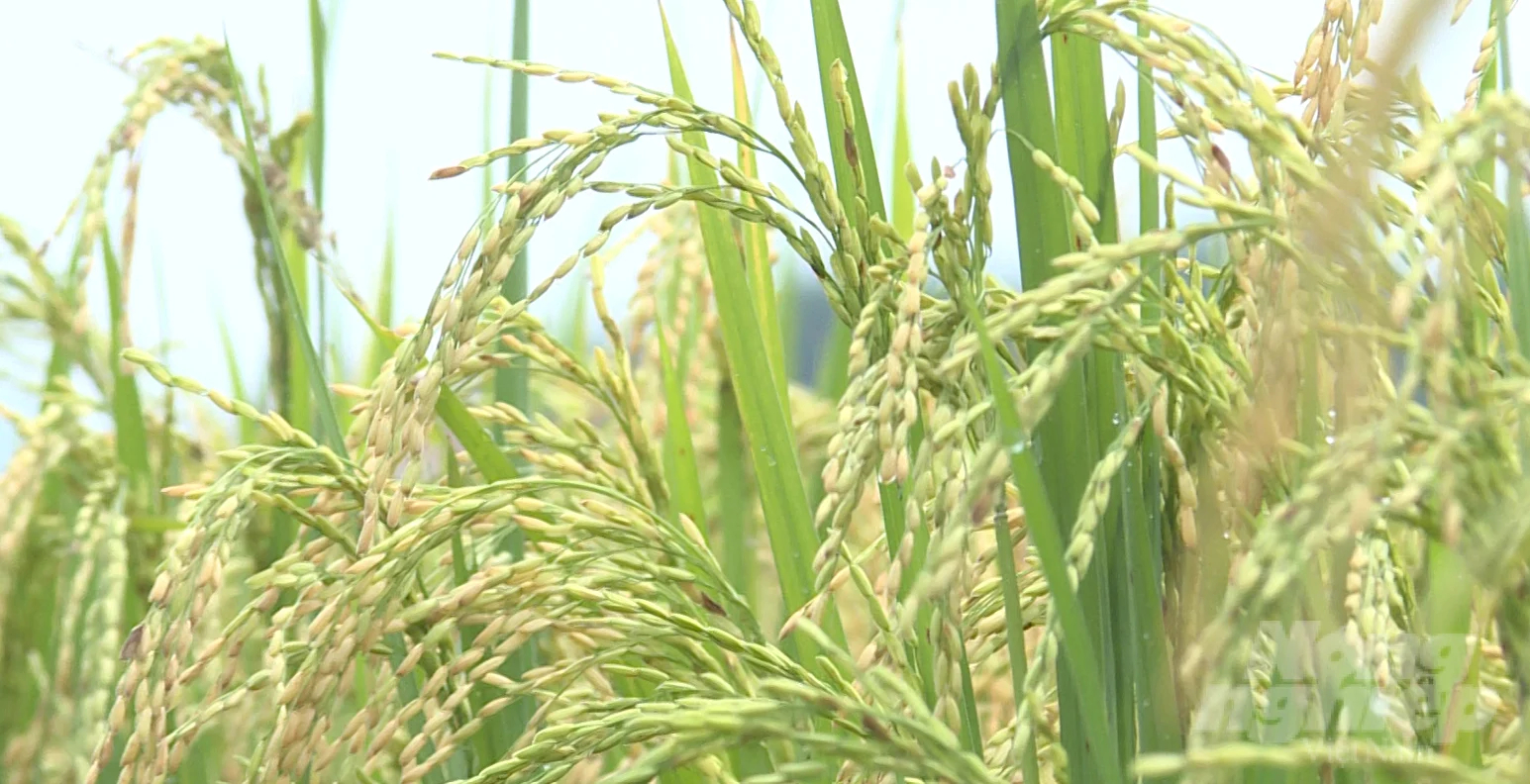
The ratio of firm grains on organically grown rice is quite high. Photo: Quoc Toan.
I wondered and asked Mr. Quyen: Organic farming is so difficult, why not link up with businesses that have potential, capacity, and experience in agricultural production to transfer science and technology in organic rice farming instead of having to campaign each household? Mr Quyen replied: "The problem here is not doing it to demonstrate the model or for economics. Our goal is to influence and change people's awareness about organic rice farming, thereby moving towards a movement of all people producing organic rice".
Currently, Yen My commune has invested in a fairly complete irrigation system, ensuring the water source is not polluted or mixed with chemical impurities when irrigating rice. In particular, during the implementation of the model, households sign a commitment to strictly comply with the organic rice production process such as not using chemical pesticides, inorganic fertilizers, herbicides, or banned substances in production...
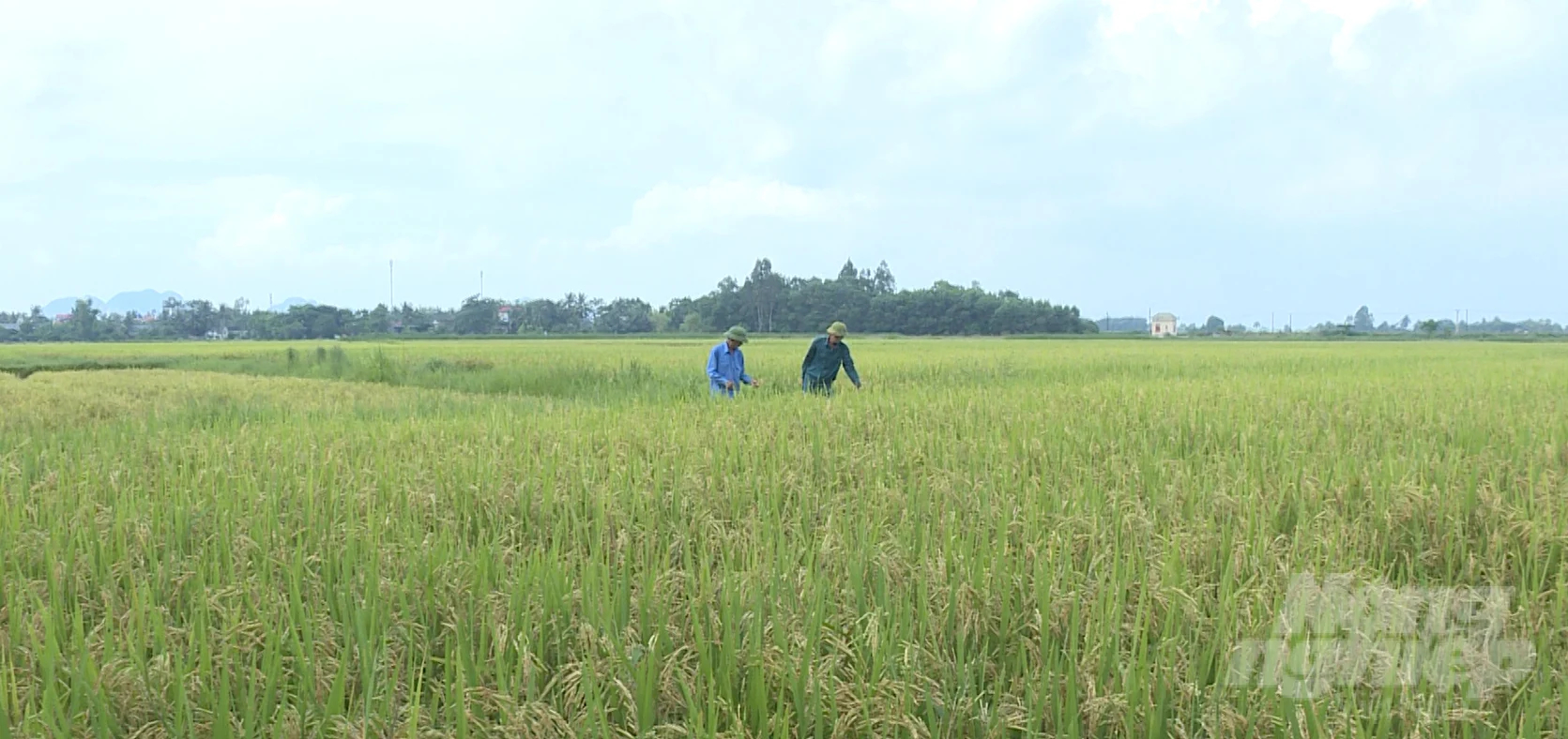
Organic rice fields in Te Nong commune promise a high-yield crop. Photo: Quoc Toan.
Ms. Hoang Thi Lien (An Lam village, Yen My commune) has 3 acres of rice using organic production processes. In the 2023 crop season, her family does not use any inorganic fertilizers and chemicals to cultivate rice, but the rice fields still yield high yields.
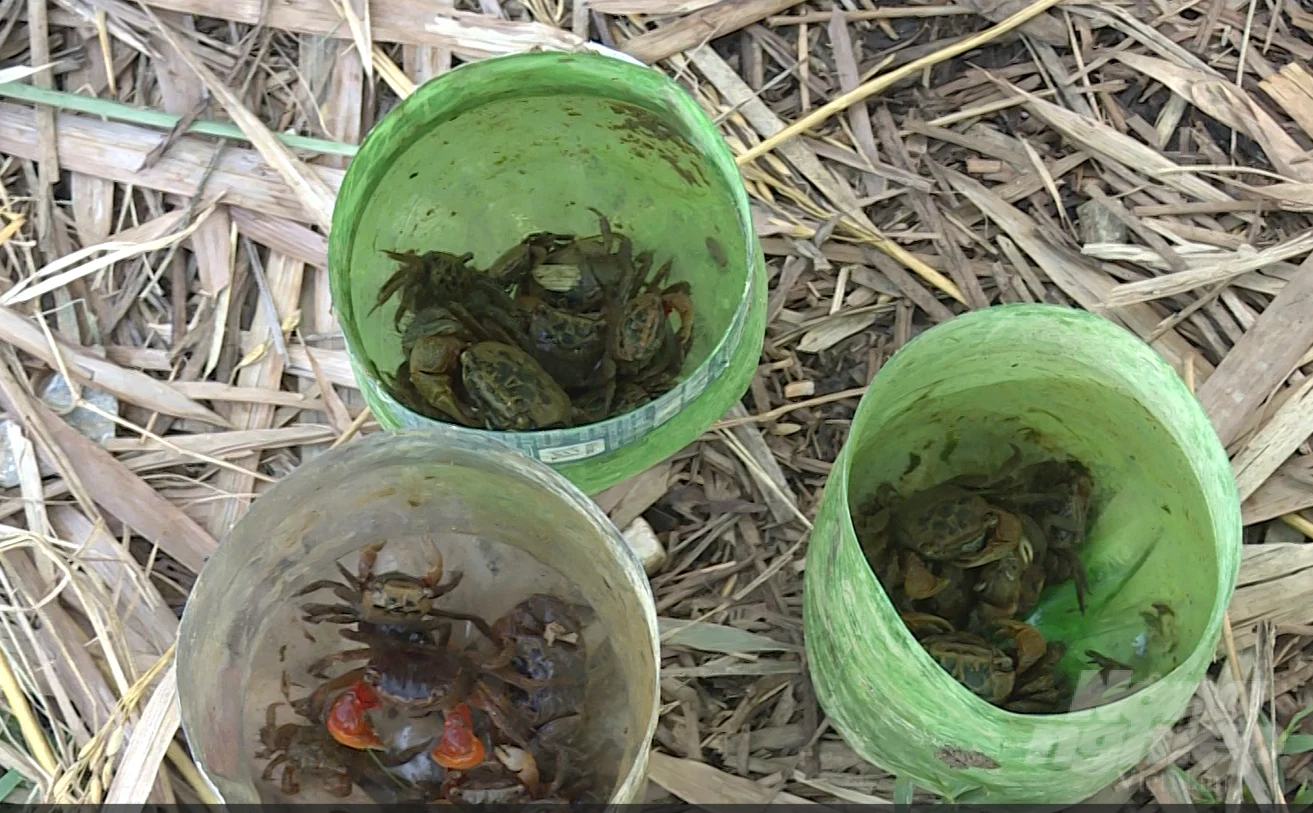
In addition to organic rice farming, many households also have a good income from catching crabs and fish in the fields. Photo: Quoc Toan.
Mr. Pham Trong Dong in Hop Nhat village (Te Nong commune) said that this is the third crop his family has grown rice organically, bringing productivity and stable income. Compared to simple rice cultivation, rice produced using organic processes requires more labor and fertilization. But in return, it provides stable productivity, clean, delicious rice quality, and a clean environment are guaranteed. On average, each rice plant has 200 - 230 seeds, with few flat seeds. The average yield is about 2.5 - 3 quintals/acre depending on the soil", Mr. Dong said.
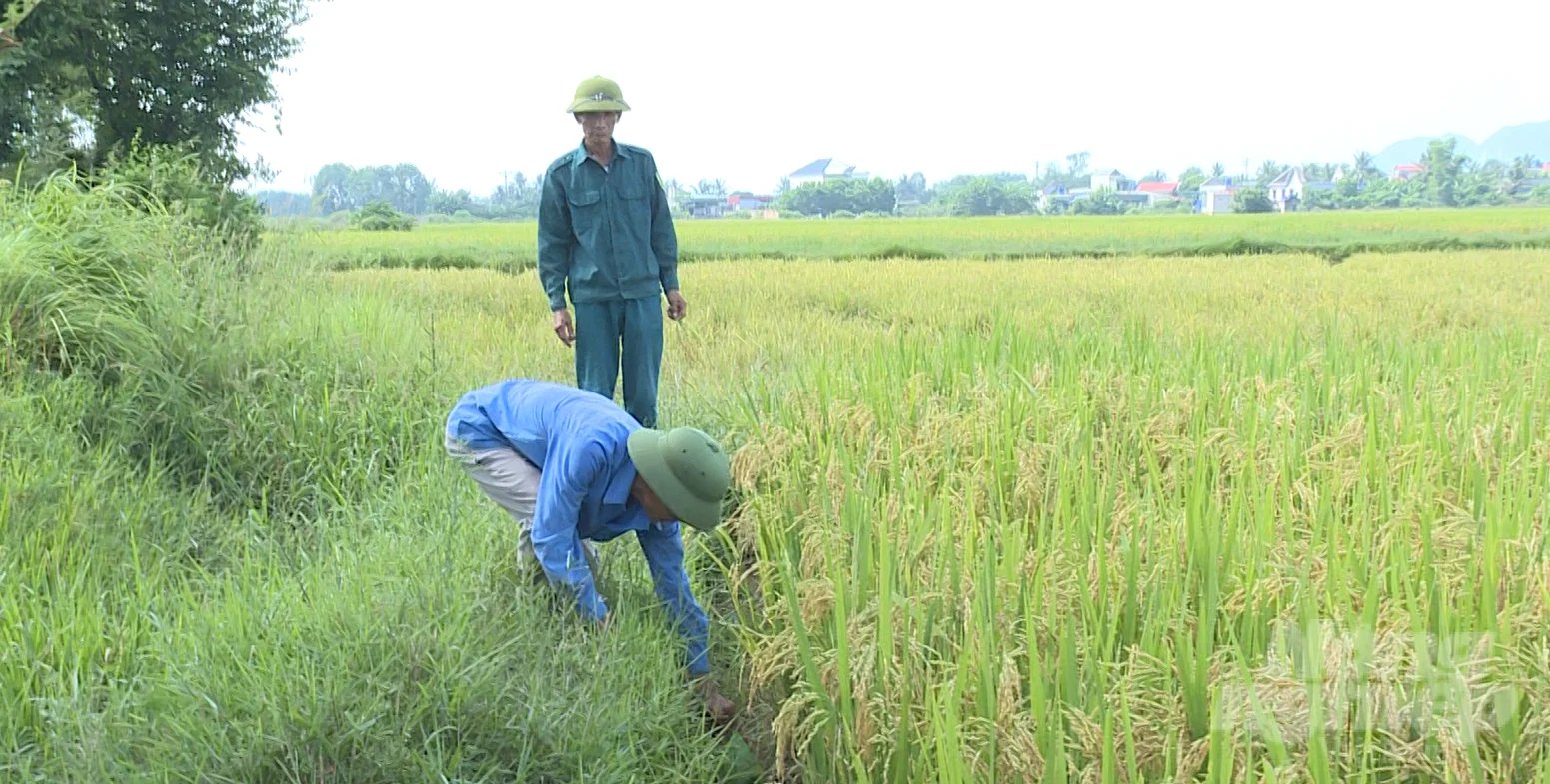
People go fishing at the foot of organically cultivated rice fields. Photo: Quoc Toan.
Growing rice using organic processes not only helps his family and other farmers have clean food to use but also helps farmers earn more income from selling and raising ragworms in the fields.
Translated by Hoang Duy
/2025/11/26/4909-2-154329_878.jpg)
(VAN) Pearl grouper farming in HDPE cages not only delivers economic efficiency but also contributes to protecting the environment, creating jobs, and promoting marine-based experiential tourism.

(VAN) The model of making a living under the forest canopy through the agroforestry system in Van Son commune, Bac Ninh province, is expected to generate an annual income of approximately VND 30 million/ha.

(VAN) Many enterprises in Can Tho are harnessing natural energy and reducing greenhouse gas emissions in their production processes, thereby contributing to the promotion of a sustainable green transition.
/2025/11/24/3536-2-112800_176.jpg)
(VAN) Dong Nai now has tens of thousands of hectares of forests certified for sustainable management, and this area will continue to be expanded in the coming period.

(VAN) Vinh Ha hamlet (Dai Xuyen commune, Hanoi) is shifting away from small-scale farming as households adopt bioscurity into their breeder chicken models.

(VAN) Heavy rains make aquatic species more vulnerable to disease. Proactive water management and high-tech systems help farmers prevent outbreaks and protect yields.

(VAN) Greenhouses are shifting production mindsets in Binh Lu commune, enabling farmers to ‘weather the sun and rain’ and secure stable vegetable harvests throughout the year.